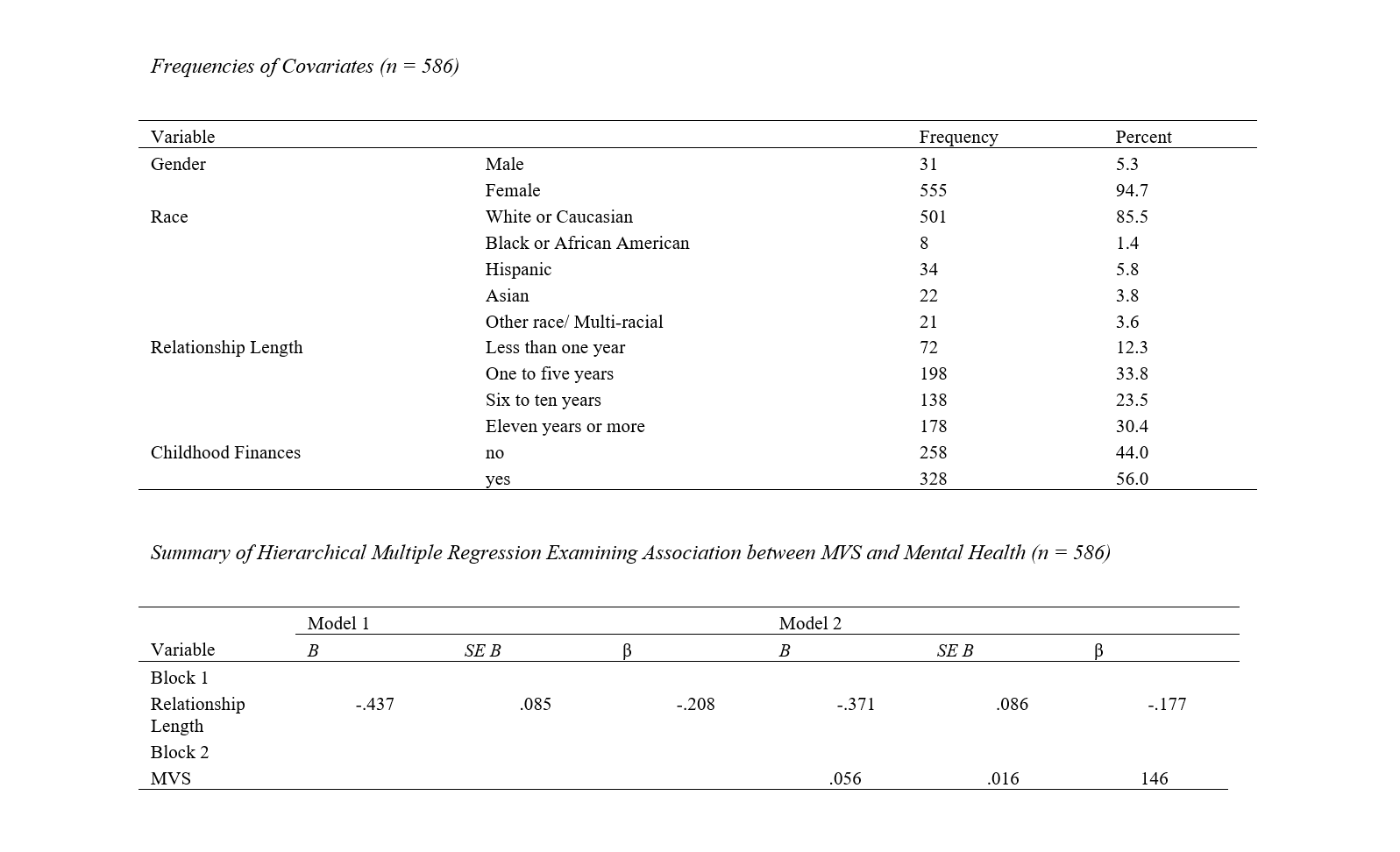Exploring the effects of a materialistic lifestyle on mental health
Abstract
Objective: Materialism focuses on goals and values that subscribe to acquiring items. Lower materialism was found to be associated with increased happiness and decreased depressive symptoms. This study aims to explore the effects of materialistic lifestyle on mental health.
Method: The research question driving this study asks, how does living a materialistic lifestyle impact an individual’s mental health? The study is made up of 555 females and 31 males. Participants completed a demographic questionnaire, the Material Values Scale (created by Richins and Dawson in 1992), and the Medical Outcomes Study (MOS) 20-Item Short-Form Health Survey (SF-20; created by Stewart and colleagues in 1988).
Results: A hierarchical multiple regression was found that materialistic values are a statistically significant predictor of mental health.
Conclusion: Limitations of the study, implications for clinical practice, and future directions are discussed. We conclude that our hypothesis was supported; living a materialistic lifestyle negatively impacts an individual’s mental health.
Downloads

Downloads
Additional Files
Published
Issue
Section
License
Copyright (c) 2024 Michelle Cappetto (Author); Eman Tadros (Corresponding Author)

This work is licensed under a Creative Commons Attribution-NonCommercial 4.0 International License.




















